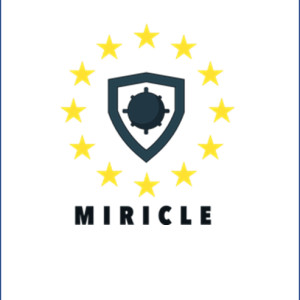 \
&
Contact us
\
&
Contact us
 \
&
Contact us
\
&
Contact us
Published on | 3 years ago
Programmes COST COSTThe COST Office has launched two new types of grants in COST Actions to respond to the rising need of digital tools in the context of the COVID pandemic and to ensure the continuity of the COST Actions’ work activities. It concerns a pilot scheme that will run until 31 October 2021.
The two new types of grants are:
Virtual Networking Support (VNS) Grant: aims at promoting a virtual alternative to in-person collaboration. This grant intends to stimulate virtual collaboration by designating a Virtual Networking Support Manager. The Virtual Networking Support (VNS) Grant amount per grant period is set at a maximum of EUR 4.000.
Virtual Mobility (VM) Grant: aims at strengthening the existing networks by allowing researchers and innovators to carry out collaboration in a virtual setting, to exchange knowledge, learn new techniques, disseminate Action results, etc. The maximum amount per VM Grant is EUR 1.500, with a maximum of 6 VM Grants per Action per Grant Period (up to 1,500 EUR per grant, max 9,000 EUR).
Please note that COST will not provide addtional budget for these new grants. Actions are expected to reallocate their current budget for these two types of grants.
More information on the virtual networking tools can also be found here.
We offer news and event updates, covering all domains and topics of Horizon Europe, Digital Europe & EDF (and occasionally, for ongoing projects, Horizon 2020).
Stay informed about what matters to you.
By signing up, you can opt in for e-mail notifications and get access to
a personalised dashboard that groups all news updates and event announcements in your domain(s).
Only for stakeholders located in Flanders
Digital, Industry & Space Cybersecurity Defence EDF
We hereby want you to give an overview of the known activities related to the EDF 2025 calls: Publication of the European Defence Fund (EDF) Work Programme 2025 infosessions: Belgian and Flanders EDF infoday on February 20th in Brussels The EDF Info Days 2025 will take place on 2-3 April in hybrid format in&n... read more
Digital, Industry & Space AI, data & cloud Deployment: Best use of technologies
The European Commission has published guidelines on prohibited artificial intelligence (AI) practices, as defined by the EU AI Act. The guidelines provide an overview of AI practices that are considered unacceptable due to their potential risks to European values and fundamental rights. The AI Act, which aims to promote innovation while... read more

The Miricle project, ‘Mine Risk Clearance for Europe’, obtained funding under the European Defence Industrial Development programme call ‘Underwater control contributing to resilience at sea’. The main objective of the project was to achieve a European and sovereign capacity in future mine warfare and create a path for the next generation ‘made in Europe’ countermeasure solutions. In order to realise this objective, Miricle addressed various stages: studies, design, prototyping and testing. These stages inter alia included the successful testing of an XL Unmanned Underwater Vehicle, a protototyped mine disposal system and multiple innovative systems to detect buried mines. Flanders Marine Institute (VLIZ), was one of the five Belgian partners in the consortium. Within the project, VLIZ was able to forward its research on the acoustic imaging of the seabed to spatially map and visualize buried structures and objects - in this case buried mines - in the highest possible detail. VLIZ also led the work on ‘Port and Offshore Testing’, building on the expertise of the institute in the field of marine operations and technology.